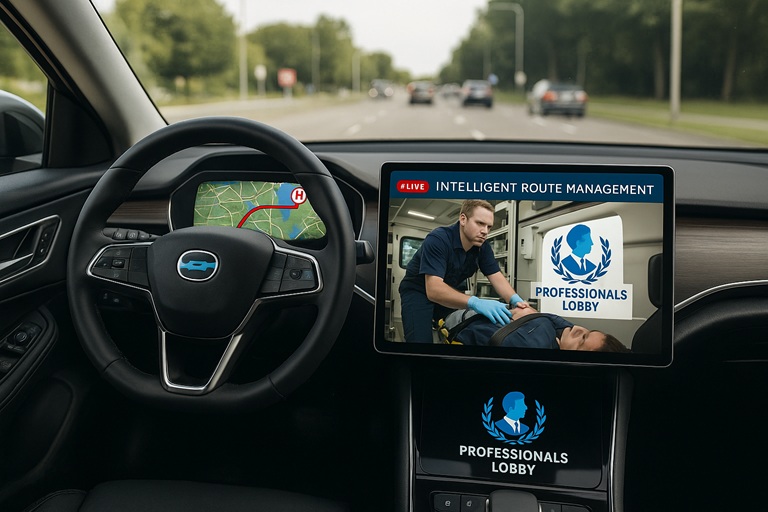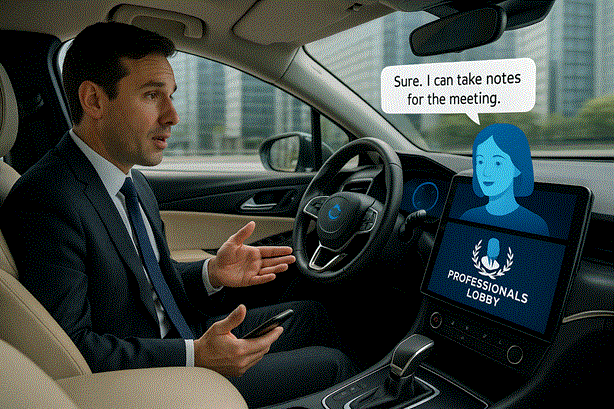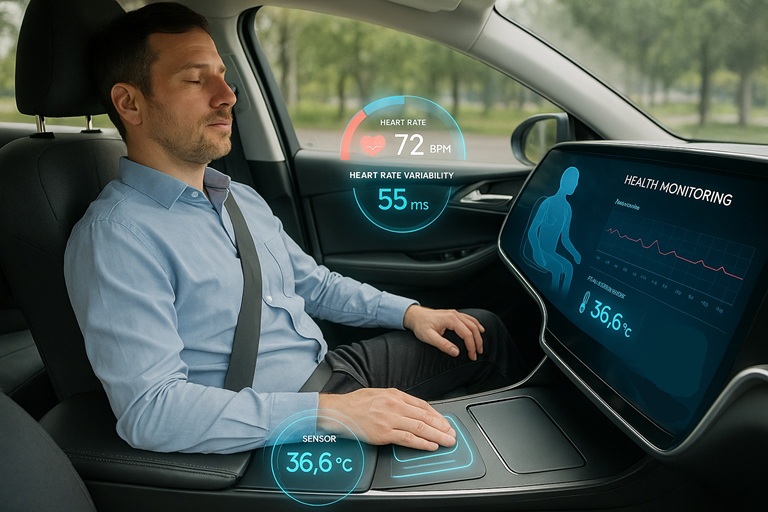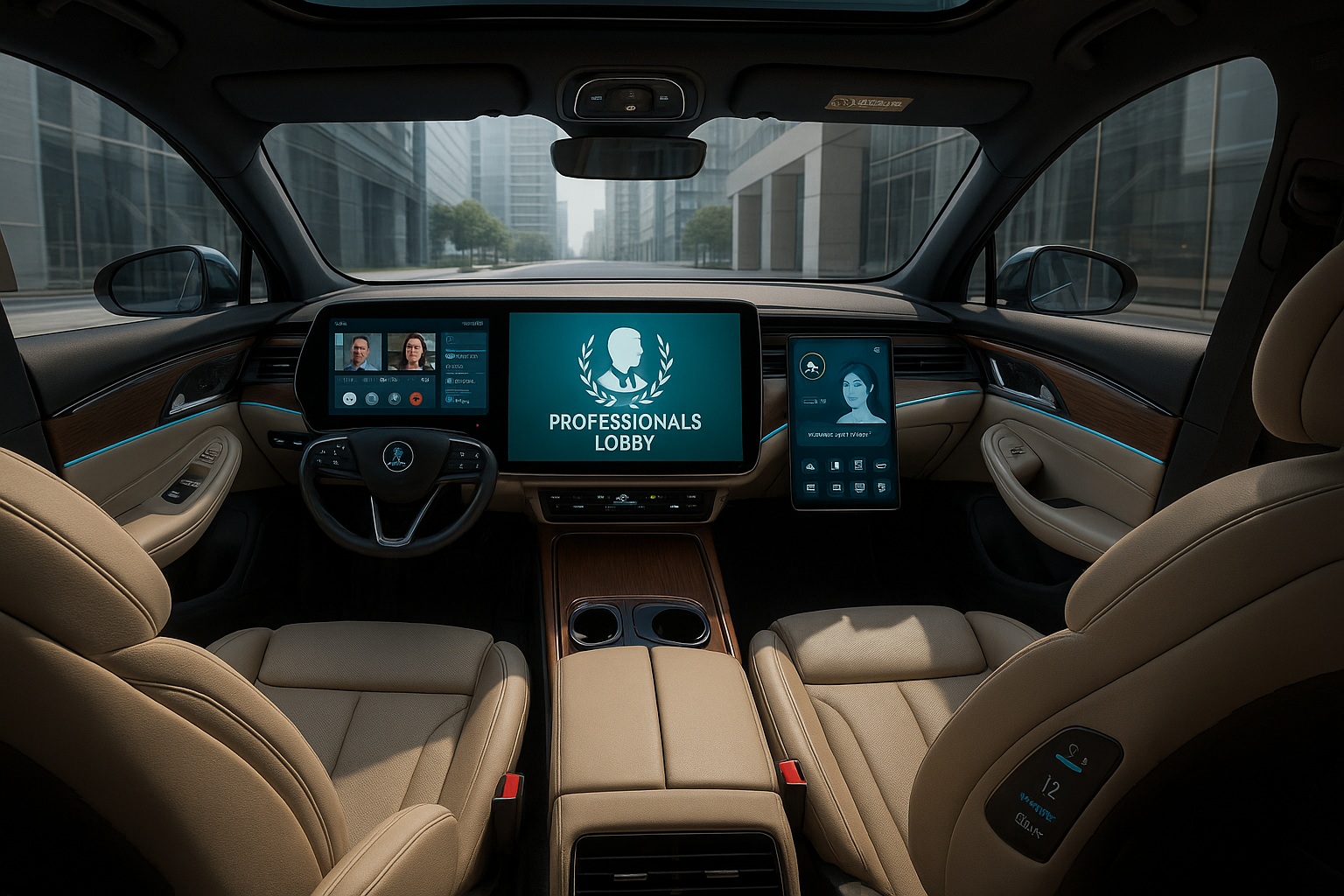The automotive industry stands at the brink of its most radical transformation since the invention of the assembly line. Within this decade, vehicles will evolve from transportation tools into intelligent companions that monitor our health, manage our schedules, and transform into mobile offices—all while navigating autonomously with near-perfect safety.
This revolution is being driven by converging technologies: artificial intelligence achieving human-like reasoning, 5G enabling real-time cloud connectivity, advanced biometrics becoming miniaturized, and autonomous systems reaching Level 4/5 capability.
Autonomous Evolution: Beyond Hands-Free Driving
Self-driving technology is progressing through distinct phases, each unlocking new capabilities:

Intelligent Route Management
Future vehicles won't just follow GPS directions—they'll analyze multiple data streams in real-time to optimize every journey:
- Cross-references your calendar events and preferences
- Processes live traffic, weather, and road conditions
- Factors in vehicle charge/fuel levels and station locations
- Adjusts for passenger comfort and health needs
Self-Servicing Vehicles
Cars will autonomously handle refueling/charging during idle periods using connected payment systems, similar to Tesla's "On-Route Battery Warmup" but fully automated.
Predictive Maintenance
Integrated diagnostics will detect issues before they occur and automatically schedule service appointments at nearby certified centers.
Autonomy Level Timeline
AI Co-Pilot: Your Digital Companion
Vehicle AI will evolve into a proactive assistant that understands context and anticipates needs:
Meeting Concierge
Hosts video conferences, records discussions, and generates meeting minutes with action items using natural language processing.
Smart Scheduler
Coordinates your calendar, adjusting travel times based on real-time factors and personal preferences.
Lifestyle Assistant
Reminds you of errands, suggests meal options based on fridge contents, and even places grocery orders.
Family Coordinator
Manages school pickups, extracurricular schedules, and coordinates with other family vehicles.
Context-Aware Interaction
Future AI won't just respond to commands—it will understand situational context:
- Recognizes when you're stressed and adjusts environment accordingly
- Anticipates needs based on location, time, and historical patterns
- Learns preferences for music, climate, and lighting for different scenarios

Mobile Health & Wellness Hub
Vehicles will become extensions of healthcare systems with advanced monitoring and support:
Continuous Vital Monitoring
Steering wheel and seat sensors track heart rate, blood pressure, oxygen levels, and stress indicators.
Emergency Response
Detects medical emergencies and automatically navigates to nearest hospital while alerting medical staff with patient data.
Wellness Optimization
Adjusts seat massage, ambient lighting, and oxygen levels to reduce stress during commute.
Mental Health Support
Uses facial recognition and voice analysis to detect mood changes and suggest interventions.

Integrated Health Dashboard
A comprehensive view of passenger health metrics with options to share data with healthcare providers or emergency contacts.
Ecosystem Integration
Future vehicles won't operate in isolation but as nodes in a connected web:
| Integration | Functionality | Benefit |
|---|---|---|
| Smart Home | Pre-cool/heating, security handoff | Seamless transition between environments |
| Urban Infrastructure | Real-time parking, traffic light coordination | Optimized routing and energy use |
| Retail & Services | Curbside pickup, automated payments | Frictionless commerce |
| Healthcare | Emergency alerts, telemedicine | Improved health outcomes |
Under the Hood: Enabling Technologies
These revolutionary features are made possible by several key technologies:
Edge AI Processors
Specialized chips that enable real-time decision making without cloud dependency.
5G/6G Connectivity
Ultra-low latency communication enabling vehicle-to-everything (V2X) networks.
Advanced Biometrics
Miniaturized health sensors embedded throughout vehicle surfaces.
Quantum Encryption
Unhackable security for personal data and vehicle controls.
Projected Adoption Timeline
The Road Ahead
The automotive industry is undergoing a paradigm shift—from manufacturing vehicles to providing mobility-as-a-service. By 2030, cars will transition from mechanical conveyances to intelligent companions that actively participate in and enhance our daily lives.
This transformation raises important questions about data privacy, cybersecurity, and the changing nature of human-machine relationships. However, the potential benefits—from dramatic reductions in traffic fatalities to unprecedented mobility for elderly and disabled individuals—make this evolution both inevitable and profoundly impactful.
The future of automotive technology isn't just about getting from point A to point B—it's about reclaiming time, enhancing wellbeing, and creating seamless connections between all aspects of our lives.

Prepare for the Mobility Revolution
Our technology consultants help businesses navigate the coming transformations in transportation, IoT, and AI integration.
Schedule Consultation